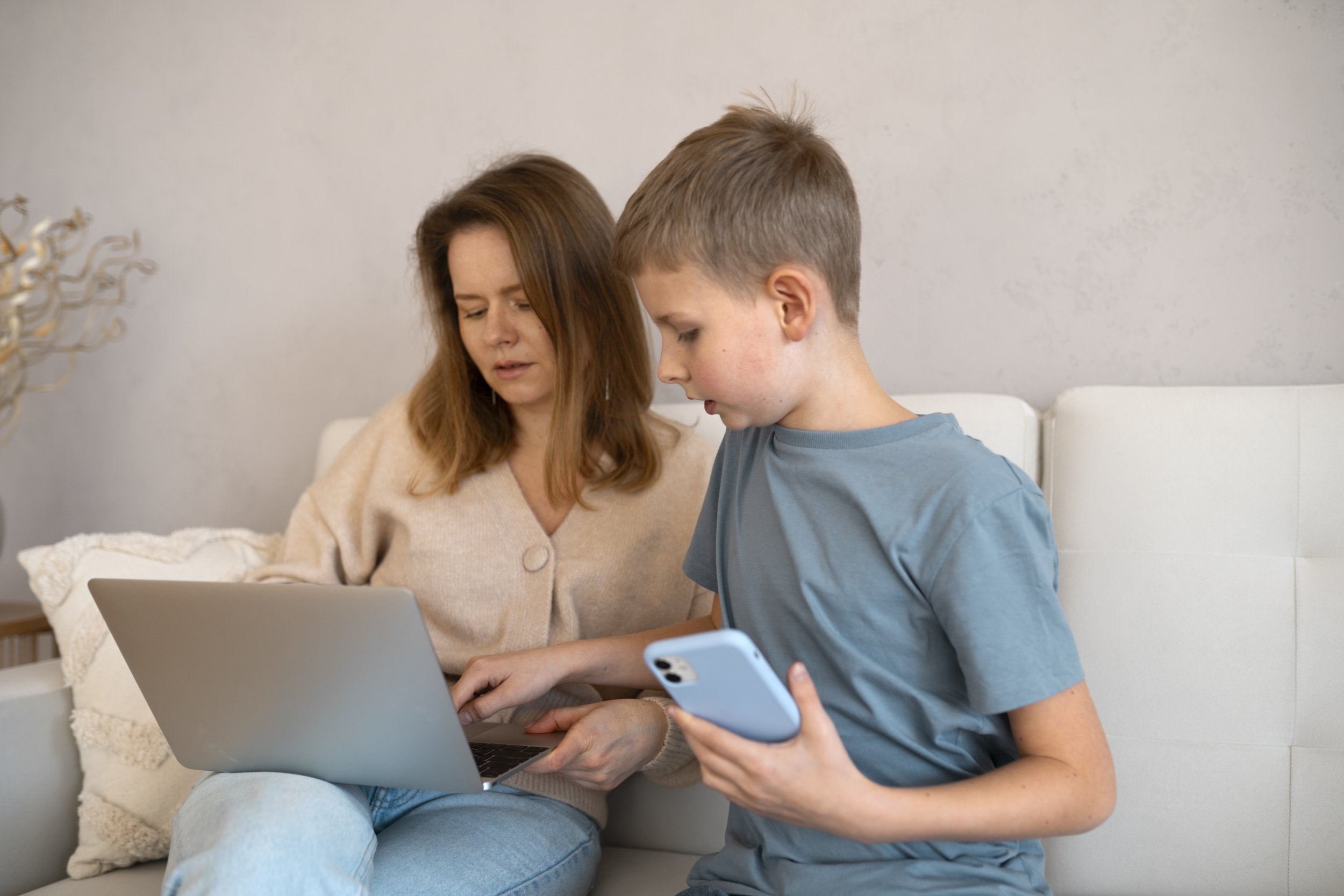Is It Fair to Place the Entire Burden of Online Access on Parents?
While tools like screen time limits exist, the responsibility of managing children’s online access often falls squarely on parents. Even schools have largely left this decision up to parents, failing in many cases to implement any binding rules about smartphones and smartwatches. As legal guardians, parents routinely make decisions impacting their children's upbringing, yet navigating the complexities of the digital landscape is far from straightforward. Unlike deciding whether a child can venture to the store alone or indulge in another hour of TV, the digital realm presents unique challenges.
Rapid Technological Change: Parents may not keep pace with the ever-evolving digital landscape. Many lack the necessary technological savvy or awareness of online behaviors among youth, potentially overlooking dangers present in social media or methods children use to circumvent parental controls.
Social Comparison: Decisions regarding screen time and device usage are often compared to those of peers, adding pressure to conform to social norms and expectations. This also extends to the model and brand of devices that children use.
External Influences: Parents may lack insight into the contexts that influence their children's online behaviour, such as interactions at school or in social circles. Then there is the influence of marketing, which punctuates children’s spending on commodities such as beauty products, cosmetics, food and beverages, and fashion.
Desire for Autonomy: While parents aim to grant their children the freedom to communicate with friends, the complexities of texting and online interactions can be challenging to navigate.
Time and Energy: Enforcing rules about online behavior requires a significant investment of time and effort, which can feel like yet another burden for busy parents already managing multiple responsibilities.
Balancing Trust and Control: Parents strive to foster trusting relationships with their children, yet many monitoring tools can feel overly controlling rather than supportive.
Multiple Rules to Enforce: In addition to managing bedtime and homework, parents are now also expected to enforce rules about digital hygiene, such as limiting screen time and ensuring devices are used in common areas.
Conflicting Information: The abundance of conflicting studies about online interaction complicates parents' ability to discern appropriate guidelines for their children.
Perceived Hypocrisy: Many parents are active online themselves, which can create a sense of hypocrisy when restricting their children’s digital access.
Lack of Consensus: The debate surrounding the impact of devices on education and mental health remains unresolved. Without definitive evidence, determining appropriate screen time limits, introduction ages, and device permissions becomes difficult. There are also conversations about basic rights, with some people saying that it should be a basic right to have a smartphone.
Beyond Smartphones: The conversation extends beyond smartphones to include tablets, laptops, and gaming consoles, all of which pose their own challenges.
Social Integration: Parents recognize the potential social benefits of online interaction and are often reluctant to alienate their children, fearing they might miss out on critical social experiences.
Need for Alternatives: With modern life’s demands, parents sometimes require breaks, and the internet can serve as a temporary solution for entertaining children, especially as local community structures have weakened.
Educational Resources: As educational materials shift online, children could fall behind if not allowed screen access, raising questions about how to balance learning with screen time restrictions.
Location Location. Parents face a moral dilemma when it comes to tracking their child's or teen's location. The ethical implications of monitoring their movements raise important questions about privacy and autonomy.
In today’s digital age, the question of whether it’s fair to place the entire burden of online access and behavior on parents is more pressing than ever. The challenges are multifaceted, and finding a balanced approach is essential for the well-being of both parents and children. Since the launch of the first iPhone in 2007, we have gradually adapted to the vast expanse of online information. As smartphones have evolved, so have our behaviours. However, children are often thrust into this complex digital world during all complex stages of development without the same preparation. This leaves them very vulnerable. They receive smartphones and are expected to navigate their intricacies without adequate support.
It’s crucial to reconsider how we introduce kids to smartphones. They require more guidance than simply handing over a device. Schools play a vital role in equipping children with the digital literacy skills needed to navigate online content and recognize potential dangers before they are given a phone. Essentially, we are handing them the keys to a brand-new car but failing to provide any instruction on how to drive. This responsibility often falls on parents, who may lack the knowledge, time, energy, or resources to effectively guide their children through these challenges. As we navigate this new terrain, it’s clear that collaborative efforts between parents, educators, communities, technology providers, and governments are essential for ensuring our children can thrive in an increasingly digital world. We can’t do this alone.


